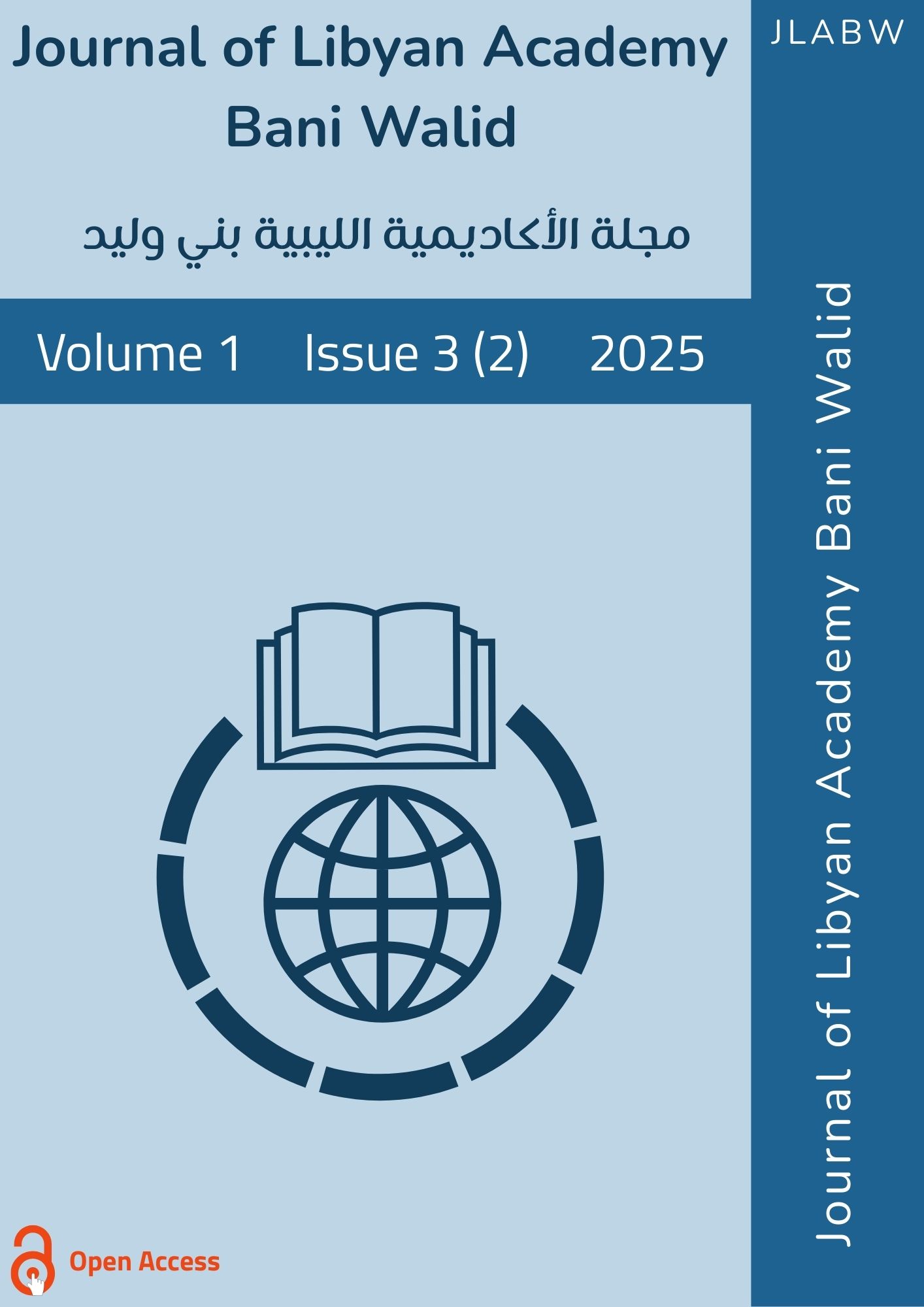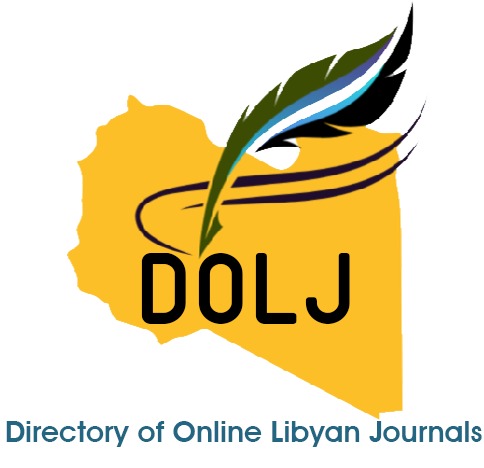Emergence Rates of the Peach Fruit Fly (Bactrocera zonata), (Saunders) ( Diptera: Tephritidae)
DOI:
https://doi.org/10.61952/jlabw.v1i3.223Keywords:
الخوخ, Bactrocera zonata, تطور العذراء, الإجهاد الحراري, المعالجة الحرارية, المكافحة غير الكيميائية, الإدارة الحرارية للآفات, جامعة الإسكندريةAbstract
تُعدّ ذبابة فاكهة الخوخ (Bactrocera zonata) من الآفات الحشرية شديدة الضرر، حيث تصيب مجموعة واسعة من المحاصيل الثمرية، مسببة خسائر اقتصادية قد تصل إلى 95%. هدفت هذه الدراسة إلى تقييم تأثير درجات الحرارة المرتفعة (25°C، 32°C، و40°C ) على معدلات خروج الحشرات البالغة من مرحلة العذراء، بالإضافة إلى دراسة إمكانية استخدام الحرارة كوسيلة فيزيائية غير كيميائية لمكافحة الآفة.
تم تنفيذ التجربة على مدى أسبوع في وحدة تربية الحشرات، كلية الزراعة، جامعة الإسكندرية. لكل معاملة حرارية، تم إعداد ثلاث مكررات، تحتوي كل منها على 20 عذراء موضوعة في أطباق بتري بقطر 9 سم، تحت ظروف بيئية مضبوطة، وتمت مراقبة خروج البالغين يوميًا. أظهرت النتائج أن أعلى معدل خروج (90%) تحقق عند درجة حرارة 25°C، بينما انخفض المعدل إلى 52% عند 32°C، وتراجع بشكل حاد إلى 13% عند 40°C. تشير هذه النتائج إلى أن درجات الحرارة المرتفعة تؤثر سلبًا على تطور العذراء وخروج البالغين، مما يدعم إمكانية استخدام الحرارة كبديل صديق للبيئة عن المبيدات الكيميائية في مكافحة B. zonata.
الكلمات المفتاحية: الخوخ، Bactrocera zonata، تطور العذراء، الإجهاد الحراري، المعالجة الحرارية، المكافحة غير الكيميائية، الإدارة الحرارية للآفات، جامعة الإسكندرية.
References
Ali, M. A. (2016). Effect of temperature on the development and survival of immature stages of the peach fruit fly, Bactrocera zonata (Saunders) (Diptera: Tephritidae). African Journal of Agricultural Research, 11(36), 3375–3381.
Awde, D. N., Řeřicha, M., & Knapp, M. (2023). Increased pupal temperature has reversible effects on thermal performance and irreversible effects on immune system and fecundity in adult ladybirds. Communications Biology, 6, Article 838.
Bilal, H., Khan, M. A., Shah, M., & Ahmad, M. (2021). Management of Bactrocera zonata through application of different tactics: A review. Current Research in Agriculture and Farming, 2(3), 8–16.
Choudhary, J. S., Mali, S. S., Naaz, N., Singh, S., & Prabhakar, C. S. (2020). Predicting the population growth potential of Bactrocera zonata using temperature development growth models and their validation under fluctuating temperature conditions. Phytoparasitica, 48(1), 1–13. https://doi.org/10.1007/s12600-019-00777-4
EPPO. (2022a). Bactrocera zonata datasheet. EPPO Global Database. https://gd.eppo.int/taxon/DACUZO
Mahmood, I., Imadi, S. R., Shazadi, K., Gul, A., & Hakeem, K. R. (2016). Effects of pesticides on environment. In K. R. Hakeem, M. Akhtar, & S. Abdullah (Eds.), Plant, Soil and Microbes (pp. 253–269). Springer. https://doi.org/10.1007/978-3-319-27455-3_13
Podlesnik, J. (2025). Pupal development and thermal tolerance in Tenebrio molitor. Insects, 16(4), 402.
Rabab, R. A., Al-Eryan, M. A., El-Minshawy, A. M., & Gadelhak, G. G. (2016). Laboratory rearing of the peach fruit fly Bactrocera zonata (Saunders) (Diptera: Tephritidae) on semi-artificial diet based on soybean protein. Alexandria Journal of Agricultural Sciences, 61(3), 175–183.
White, I. M., & Elson-Harris, M. M. (1992). Fruit flies of economic significance: Their identification and bionomics. CAB International.
Xu, X., Zhang, Y., Li, H., & Chen, J. (2023). Impacts of high temperature on pupal development in Apis cerana. Frontiers in Ecology and Evolution. https://www.frontiersin.org/journals/ecology-and-evolution








